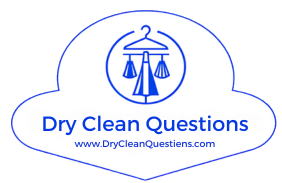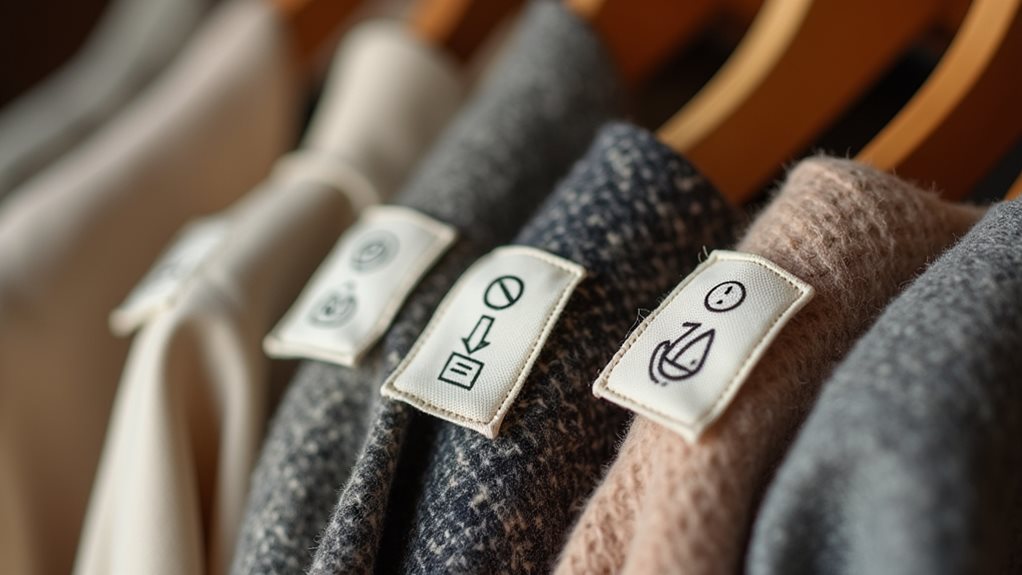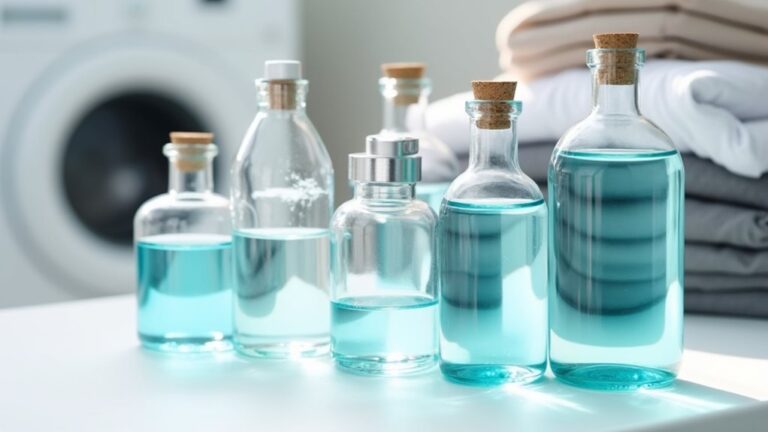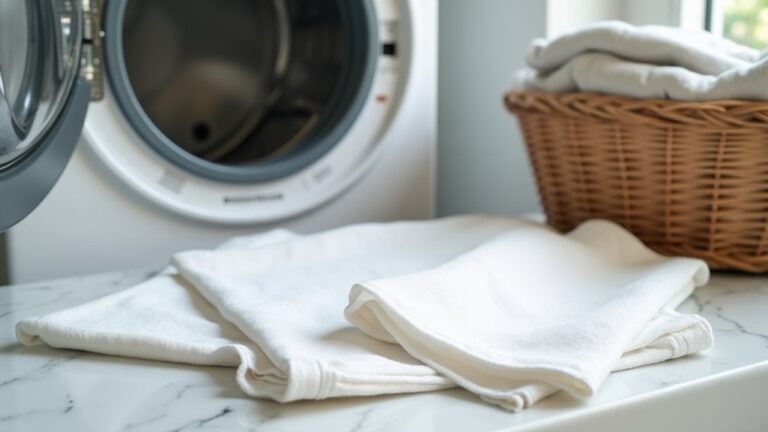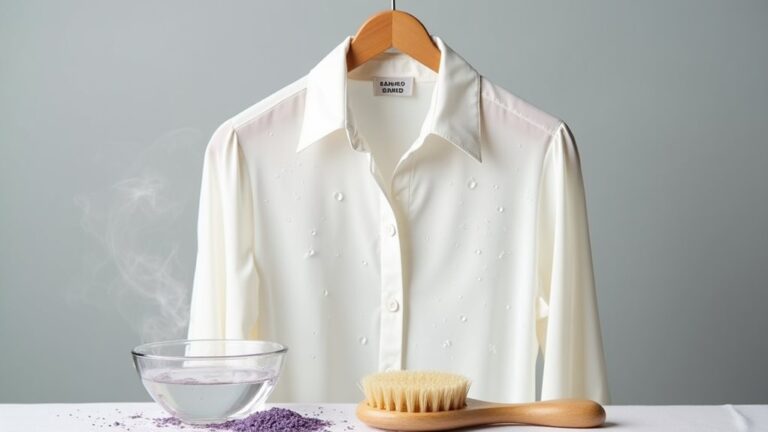“Dry clean recommended” means you’ve got options—unlike “dry clean only,” this label gives you the flexibility to wash certain garments at home if you’re careful about it. The manufacturer is basically saying professional cleaning is the safest route, but they won’t void any warranties if you choose gentle home washing instead. You’ll want to check the fabric content first, since sturdy polyesters might handle a delicate cycle while silk or wool could spell disaster, and there are specific techniques that’ll help you make the right call.
Understanding the Difference Between “Dry Clean Only” and “Dry Clean Recommended”
When I first started doing my own laundry in college, I’ll admit I was completely baffled by those tiny care labels tucked inside garments, treating every piece of clothing like it needed the same basic wash-and-dry treatment until I accidentally turned my favorite wool sweater into something that would’ve fit my little sister perfectly.
That’s when I learned the vital difference between “dry clean only” and “dry clean recommended” labels.
While “dry clean only” means absolutely no home washing (trust me on this one 😅), “dry clean recommended” gives you flexibility based on fabric type and durability.
You can explore gentle methods at home, but always do a spot test first to protect garment quality and avoid my sweater-shrinking fate.
Understanding which cleaning method to choose is especially important for delicate fabrics like wool and silk, since dry cleaning uses chemical solvents instead of water to prevent the shrinkage and damage that traditional washing can cause.
Which Fabrics and Garments Typically Require Professional Dry Cleaning

Although I’ve learned this lesson through countless wardrobe mishaps over the years, certain fabrics and garments absolutely demand professional dry cleaning if you want to keep them looking their best.
Delicate fabrics like silk, wool, and velvet can’t handle water or the agitation from home laundering without suffering serious damage.
Water and agitation from home washing machines can permanently ruin delicate fabrics like silk, wool, and velvet.
Your structured garments, especially customized suits and blazers, contain special interlinings that’ll lose their shape if you attempt washing them yourself.
Vintage clothing with intricate details needs extra care to prevent irreversible harm, while suede and leather items labeled “not washable” require professional attention to maintain their texture.
Even certain blends containing viscose can experience shrinkage or distortion, making professional dry cleaning your safest bet.
Professional dry cleaning uses chemical solvents instead of water to remove stains and dirt while preserving the fabric’s original integrity, shape, and texture.
How to Determine if You Can Safely Wash “Dry Clean Recommended” Items at Home
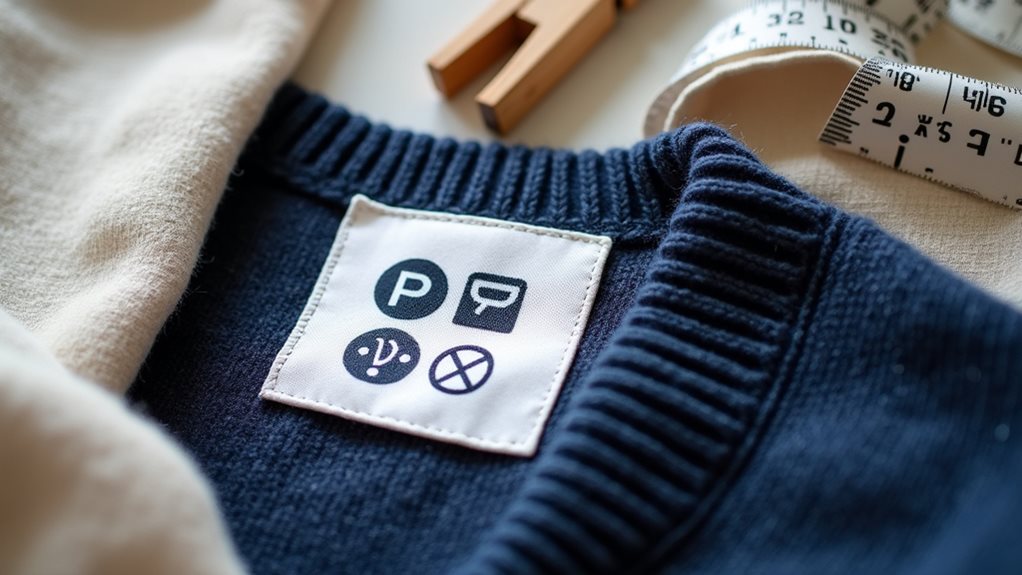
Why do clothing manufacturers make our lives so complicated with these confusing care labels, and more importantly, how can you figure out if that “dry clean recommended” blazer can survive a gentle home wash?
Start by examining what you’re working with – check the care label thoroughly for fabric content and additional warnings.
Delicate fabrics like silk scream “professional only,” while sturdy polyester whispers “maybe we can work something out.”
Before committing your favorite garments to sudsy fate, conduct a spot test on an inconspicuous seam using cold water and mild detergent.
If colors stay put and fabric doesn’t shrivel like a raisin, you’re golden!
Use a mesh laundry bag for protection, then welcome air drying to avoid shrinkage disasters. 🤞
Remember that dry cleaning uses chemical solvents instead of water, which is why professional cleaning often provides better color retention and fabric preservation than home washing.
Step-by-Step Methods for Cleaning Delicate Garments Without Professional Services
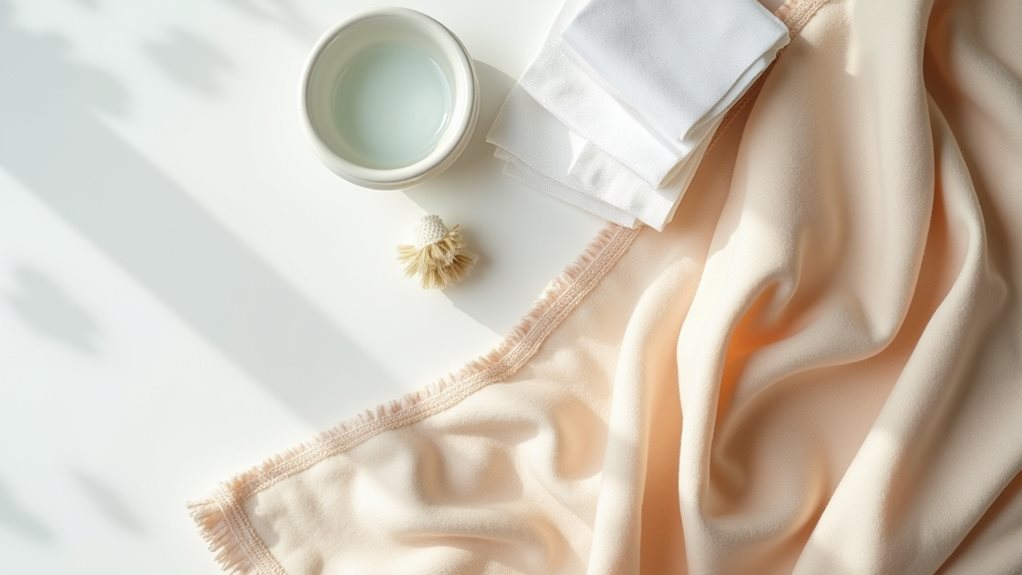
Once you’ve determined your garment can handle a home washing, the actual cleaning process becomes a careful dance between thoroughness and gentleness, requiring patience and the right technique to avoid turning your favorite silk blouse into expensive cleaning rags.
Start with a spot test on an inconspicuous seam, checking for color bleeding that could ruin your delicate garments. Fill your sink with cold water—never hot, as temperature matters more than any cleaning solvent—and add gentle detergent specifically designed for fragile fabrics.
Turn your item inside out, place it in a mesh laundry bag, then swish gently without aggressive scrubbing. After rinsing thoroughly, avoid the dryer completely and air dry flat, because heat’s the enemy of home washing success.
However, for stubborn stains like oil, grease, or makeup, professional dry cleaning services may still be necessary since water-based cleaning methods often cannot effectively eliminate these types of stains.
When to Choose Professional Dry Cleaning Over Home Washing Methods
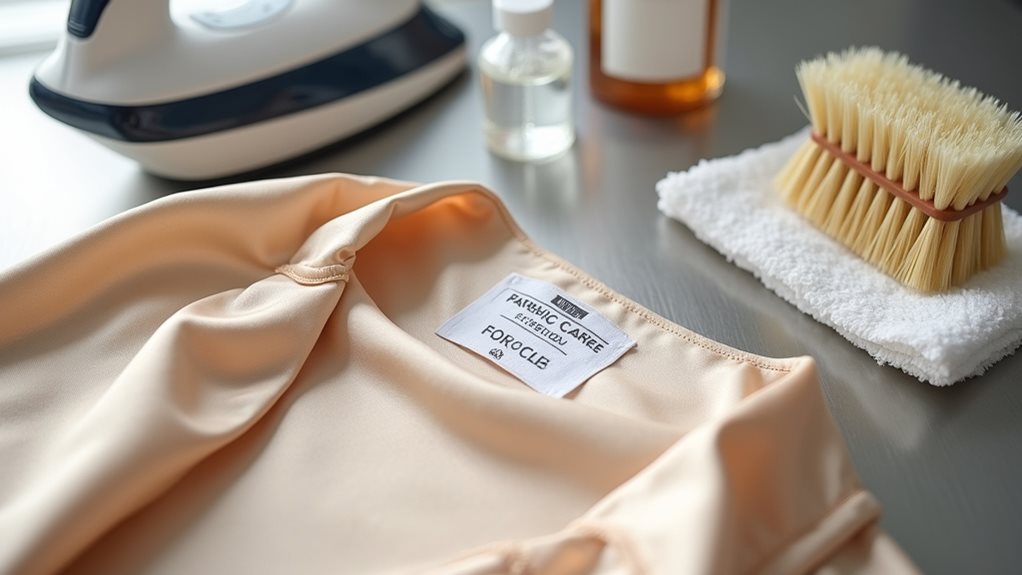
Stains are another game-changer—professionals know how to pre-treat stubborn spots without setting them permanently, preventing shrinking and color bleeding that’ll leave you crying into your laundry basket. Dry cleaners excel at removing oil-based stains, grease, makeup, and protein-based stains like blood or sweat using specialized chemical solvents that regular washing simply can’t tackle.
For long-lasting preservation, trust the experts.
